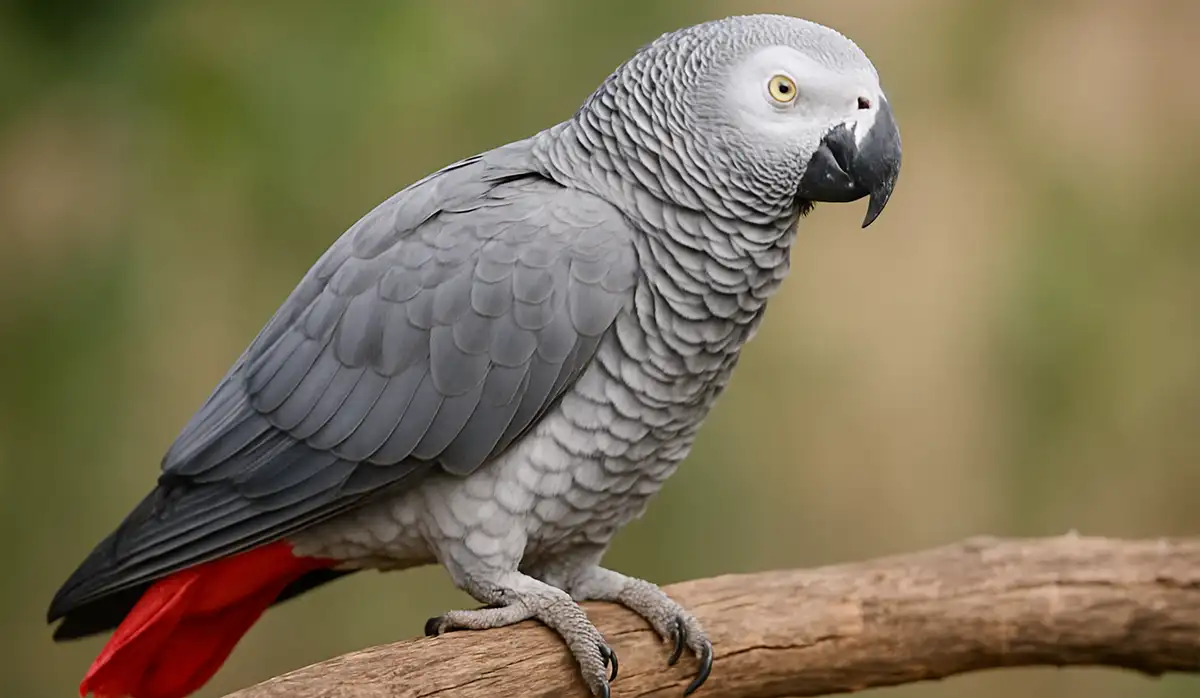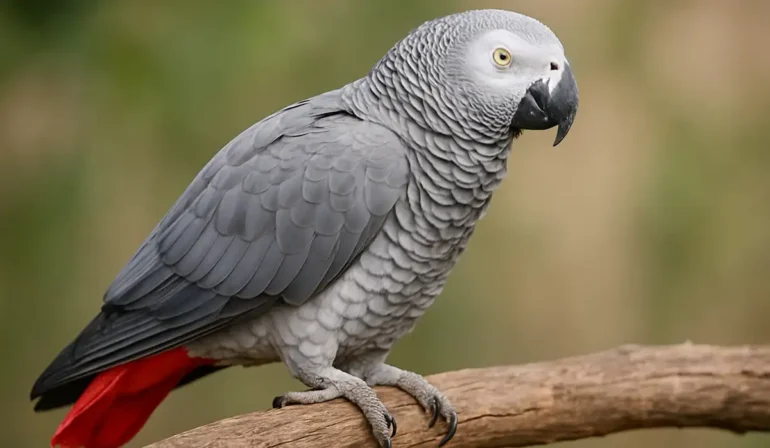Discover Why Gerbils Make Awesome Pets: A Complete Guide
By Pet Luvz on February 24, 2025

Table of Contents
Gerbils are charming, energetic little creatures that have become increasingly popular as pets in recent years. These small rodents, native to arid regions of Africa and Asia, have adapted well to domestic life and make excellent companions for both children and adults. If you’re considering adding a gerbil to your family, you’re in for a treat! These fascinating animals are not only adorable but also relatively low-maintenance, making them an ideal choice for first-time pet owners or those with limited space.
In this comprehensive guide, we’ll explore everything you need to know about gerbils as pets, from their basic care requirements to their unique behaviors and personalities. Whether you’re a curious potential owner or already have a gerbil at home, this article will provide valuable insights into these delightful little creatures.
Gerbil Basics: What You Need to Know
Before bringing a gerbil home, it’s essential to understand some basic facts about these animals:
- Size: Gerbils are small rodents, typically measuring 4-6 inches in body length, with a tail that can add another 3-4 inches.
- Lifespan: On average, gerbils live 2-4 years in captivity, though some may live up to 5 years with proper care.
- Social nature: Gerbils are social animals and are happiest when kept in pairs or small groups of the same sex.
- Activity level: These pets are diurnal, meaning they’re active during the day, making them great for owners who want to interact with their pets during waking hours.
- Temperament: Gerbils are generally friendly, curious, and relatively easy to handle when socialized properly.
Understanding these basics will help you decide if gerbils are the right pets for your lifestyle and home environment.
Setting Up a Gerbil Habitat
Creating a comfortable and stimulating environment for your gerbil is crucial for their health and happiness. Here’s what you need to know about setting up the perfect gerbil habitat:
- Cage size: A pair of gerbils needs a minimum of 20 gallons of space. Larger is always better, as gerbils love to explore and burrow.
- Cage type: Glass aquariums with secure, well-ventilated lids are ideal. Wire cages are not recommended as gerbils can squeeze through small spaces and may hurt themselves on the bars.
- Bedding: Use a deep layer (at least 6 inches) of safe, absorbent bedding such as aspen shavings or paper-based products. Avoid cedar or pine shavings, which can be harmful to gerbils.
- Nesting area: Provide a small wooden house or ceramic hideout for your gerbils to sleep and feel secure.
- Exercise wheel: A solid-surface wheel (at least 7 inches in diameter) gives your gerbils a way to exercise and burn energy.
- Toys and enrichment: Include items like cardboard tubes, wooden chew toys, and branches to keep your gerbils entertained and maintain their dental health.
- Water bottle: Attach a sipper bottle to the side of the cage for easy access to fresh water.
- Food bowl: Use a small, heavy ceramic dish that won’t tip over easily.
Remember to place the habitat in a quiet area of your home, away from direct sunlight and drafts. Regular cleaning and maintenance of the habitat are essential for your gerbils’ health and well-being.
Feeding Your Gerbil
A balanced diet is crucial for keeping your gerbils healthy and happy. Here’s what you should know about feeding your gerbil:
- Commercial gerbil food: The foundation of your gerbil’s diet should be a high-quality commercial gerbil mix, which typically contains a variety of seeds, grains, and pellets.
- Fresh vegetables: Offer small amounts of fresh vegetables a few times a week. Good options include:
- Carrots
- Cucumber
- Pumpkin
- Squash
- Broccoli (in moderation)
- Fruits: Occasional small pieces of fruit can be given as treats. Try:
- Apple (remove seeds)
- Pear
- Melon
- Berries
- Protein: Gerbils need some protein in their diet. You can offer:
- Small pieces of cooked egg
- Mealworms
- Cricket
- Treats: Commercial gerbil treats can be given sparingly, but avoid sugary or fatty options.
- Fresh water: Always provide clean, fresh water in a sipper bottle, changing it daily.
Remember to introduce new foods gradually and in small quantities to avoid digestive upset. Monitor your gerbil’s weight and adjust food amounts accordingly to prevent obesity.
Gerbil Health and Care
Keeping your gerbil healthy involves regular care and attention to their well-being. Here are some key aspects of gerbil health and care:
- Regular health checks: Observe your gerbil daily for any signs of illness, such as:
- Lethargy
- Loss of appetite
- Wet tail (diarrhea)
- Respiratory issues (sneezing, wheezing)
- Overgrown teeth
- Grooming: Gerbils are generally clean animals and groom themselves, but you can help by:
- Providing a sand bath for them to roll in, which helps keep their coat clean
- Gently brushing their fur with a soft-bristled brush if needed
- Nail trimming: If your gerbil’s nails grow too long, they may need trimming. Consult a vet for guidance on how to do this safely.
- Dental health: Gerbils’ teeth grow continuously, so provide plenty of chew toys to help wear them down naturally.
- Exercise: Ensure your gerbil gets plenty of exercise through playtime outside the cage (in a secure area) and by providing an exercise wheel in their habitat.
- Veterinary care: Find a vet experienced with exotic pets and schedule regular check-ups, typically once a year for healthy gerbils.
- Temperature: Keep your gerbil’s environment at a comfortable temperature, ideally between 65-75°F (18-24°C).
By staying attentive to your gerbil’s health and providing proper care, you can help ensure a long and happy life for your pet.
Interacting with Your Gerbil
Building a bond with your gerbil can be a rewarding experience. Here are some tips for interacting with your gerbil:
- Gentle handling: Always handle your gerbil gently and support their whole body. Let them climb onto your hand rather than picking them up suddenly.
- Socialization: Spend time near the cage talking softly to your gerbils to get them used to your presence.
- Playtime: Offer supervised playtime outside the cage in a gerbil-proofed area. This can include:
- Tunnels and tubes for exploration
- Toys to interact with
- A sand bath for rolling and playing
- Training: Gerbils can learn simple tricks with patience and positive reinforcement. Try teaching them to:
- Come when called
- Stand up on command
- Run through a simple obstacle course
- Treats: Use small treats to bond with your gerbil, but be careful not to overfeed.
- Respect their schedule: Interact with your gerbils when they’re naturally active, typically during the day.
- Group dynamics: If you have multiple gerbils, observe their interactions and ensure they’re getting along well.
Remember, each gerbil has its own personality, so be patient and let your pet set the pace for interactions.
Gerbils vs. Other Small Pets
When choosing a small pet, it’s helpful to compare gerbils to other popular options. Here’s how gerbils stack up against some other common small pets:
- Gerbils vs. Hamsters:
- Gerbils are more social and do better in pairs or groups
- Gerbils are generally more active during the day
- Hamsters are often more solitary and nocturnal
- Gerbils vs. Mice:
- Gerbils have longer lifespans (2-4 years compared to 1-2 years for mice)
- Gerbils are generally cleaner and have less odor
- Mice are smaller and may require less space
- Gerbils vs. Rats:
- Rats are larger and may require more space
- Rats are often considered more intelligent and can learn more complex tricks
- Gerbils have a longer tail and are better adapted to arid environments
- Gerbils vs. Guinea Pigs:
- Guinea pigs are much larger and require significantly more space
- Guinea pigs have longer lifespans (4-8 years)
- Gerbils are more agile and better climbers
Each of these pets has its own unique characteristics, so consider your lifestyle, available space, and personal preferences when choosing the right pet for you.
Common Gerbil Breeds
While not as varied as some other domesticated animals, gerbils do come in several different breeds or color variations. Here are some of the most common gerbil breeds you might encounter:
- Mongolian Gerbil: This is the most common pet gerbil species, scientifically known as Meriones unguiculatus. They come in various colors, including:
- Agouti (wild type)
- Black
- Lilac
- Golden
- White
- Spotted
- Fat-tailed Gerbil: Also known as the duprasi gerbil, these gerbils have a distinctive thick tail used for fat storage.
- Pallid Gerbil: These gerbils are lighter in color and have a more docile temperament compared to Mongolian gerbils.
- Great Gerbil: Larger than the Mongolian gerbil, these are less common as pets but are sometimes kept by enthusiasts.
- Shaw’s Jird: Not technically a gerbil but closely related, these animals are sometimes kept as pets and are larger than typical pet gerbils.
When choosing a gerbil, consider factors like temperament and health rather than focusing solely on color or breed. Reputable breeders or rescue organizations can help you find a healthy, well-socialized gerbil that fits your preferences.
Gerbil Behavior and Social Needs
Understanding gerbil behavior and social needs is crucial for providing the best care for your pet. Here are some key aspects of gerbil behavior:
- Social structure:
- Gerbils are highly social animals and thrive in pairs or small groups of the same sex.
- They establish hierarchies within their groups, with one gerbil often taking a dominant role.
- Communication:
- Gerbils communicate through various vocalizations, including chirps, squeaks, and purrs.
- They also use scent marking to communicate and establish territory.
- Burrowing behavior:
- In the wild, gerbils are prolific burrowers, and this instinct remains strong in pet gerbils.
- Provide plenty of bedding for your gerbils to dig and create tunnels.
- Scent gland:
- Gerbils have a scent gland on their belly, which they use to mark their territory.
- You may see them rubbing their belly against objects in their habitat.
- Foot drumming:
- Gerbils communicate by rapidly tapping their hind feet, known as foot drumming.
- This behavior can indicate excitement, alarm, or be used as a mating ritual.
- Play behavior:
- Gerbils are playful animals and enjoy running, jumping, and exploring.
- They may engage in play-fighting, which helps establish social bonds and hierarchies.
- Nesting:
- Gerbils build nests for sleeping and raising young.
- Provide nesting materials like paper towels or unscented toilet paper for them to shred and use.
- Nocturnal vs. diurnal:
- Unlike some rodents, gerbils are diurnal, meaning they’re active during the day.
- They may have periods of activity and rest throughout the day and night.
- Bonding behaviors:
- Gerbils often sleep huddled together, groom each other, and engage in mutual activities.
- These behaviors strengthen social bonds within the group.
Understanding these behaviors can help you provide an enriching environment for your gerbils and interpret their actions more accurately.
Conclusion: Is a Gerbil Right for You?
After exploring the world of gerbils as pets, you may be wondering if these charming little creatures are the right choice for you. Here’s a summary of key points to consider:
- Space requirements: Gerbils need a relatively small habitat compared to some other pets, making them suitable for apartments or homes with limited space.
- Time commitment: While gerbils require daily care and attention, they’re generally less demanding than dogs or cats.
- Social needs: Gerbils thrive in pairs or small groups, so be prepared to care for at least two gerbils.
- Interaction: These pets are diurnal, allowing for interaction during the day, which can be great for families with children.
- Lifespan: With a typical lifespan of 2-4 years, gerbils are a shorter-term commitment compared to some other pets.
- Cost: Initial setup costs for habitat and supplies can be moderate, but ongoing costs for food and care are generally low.
- Allergies: Gerbils produce less dander than some other pets, potentially making them a good choice for people with mild allergies.
- Noise level: Gerbils are relatively quiet pets, suitable for apartments or shared living situations.
- Child-friendly: With proper supervision, gerbils can be excellent pets for teaching children responsibility.
- Unique personality: Gerbils are curious, active, and entertaining to watch, providing hours of enjoyment for their owners.
If you’re looking for a small, friendly, and relatively low-maintenance pet that’s active during the day and enjoys social interaction, a gerbil might be the perfect choice for you. Remember to research local laws regarding pet ownership, as gerbils are not legal to keep as pets in all areas.
Before making the decision to bring a gerbil into your home, ensure you’re prepared for the commitment of pet ownership. With proper care, attention, and love, gerbils can make wonderful companions and bring joy to your household for years to come.
YOU MAY ALSO LIKE
Top Pick
-

7 Proven Benefits of Fresh Pet Dog Food for Daily Health
January 11, 2026
-

African Grey Parrot: A Smart, Loving, and Talkative Companion
July 22, 2025
-

5 Best Canister Filters for Crystal Clear Water in Your Pet Fish Tank
July 8, 2025
-

Is Pumpkin Good for Cats? Everything You Need to Know
July 5, 2025
-

Swim Bladder Treatment: Solutions for Aquarium Fish Health
July 3, 2025











